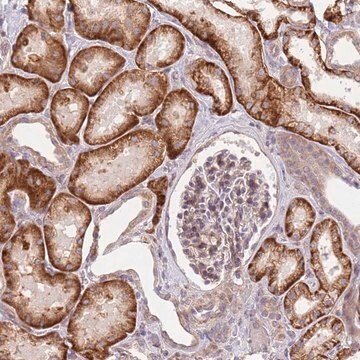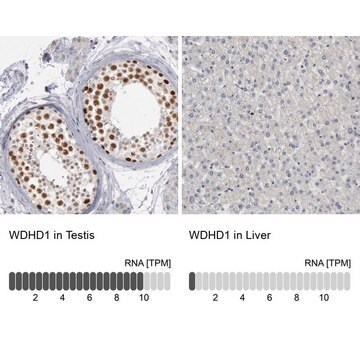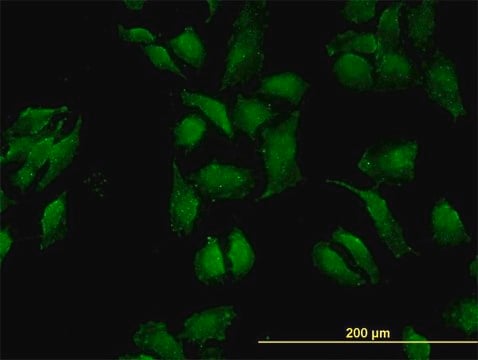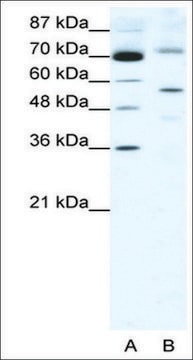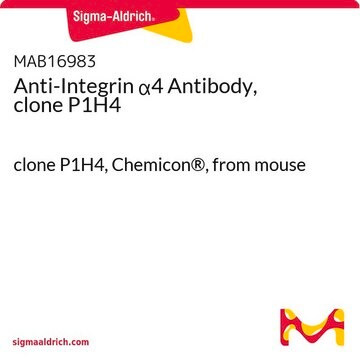HPA021451
Anti-SLC16A3 antibody produced in rabbit
Prestige Antibodies® Powered by Atlas Antibodies, affinity isolated antibody, buffered aqueous glycerol solution
别名:
Anti-MCT 3, Anti-MCT 4, Anti-Monocarboxylate transporter 3, Anti-Monocarboxylate transporter 4, Anti-Solute carrier family 16 member 3
About This Item
推荐产品
生物源
rabbit
共軛
unconjugated
抗體表格
affinity isolated antibody
抗體產品種類
primary antibodies
無性繁殖
polyclonal
產品線
Prestige Antibodies® Powered by Atlas Antibodies
形狀
buffered aqueous glycerol solution
物種活性
rat, human, mouse
技術
immunofluorescence: 0.25-2 μg/mL
immunohistochemistry: 1:200-1:500
免疫原序列
AEEEKLHKPPADSGVDLREVEHFLKAEPEKNGEVVHTPETSV
UniProt登錄號
運輸包裝
wet ice
儲存溫度
−20°C
目標翻譯後修改
unmodified
基因資訊
human ... SLC16A3(9123)
一般說明
免疫原
應用
生化/生理作用
特點和優勢
Every Prestige Antibody is tested in the following ways:
- IHC tissue array of 44 normal human tissues and 20 of the most common cancer type tissues.
- Protein array of 364 human recombinant protein fragments.
聯結
外觀
法律資訊
免責聲明
未找到合适的产品?
试试我们的产品选型工具.
儲存類別代碼
10 - Combustible liquids
水污染物質分類(WGK)
WGK 1
商品
Protein-based drug transporters are expressed in Sf9 cells. Understanding the specific mechanisms of tumor cell transporters is an essential aspect of chemotherapeutic drug design.
Protein-based drug transporters are expressed in Sf9 cells. Understanding the specific mechanisms of tumor cell transporters is an essential aspect of chemotherapeutic drug design.
Protein-based drug transporters are expressed in Sf9 cells. Understanding the specific mechanisms of tumor cell transporters is an essential aspect of chemotherapeutic drug design.
Protein-based drug transporters are expressed in Sf9 cells. Understanding the specific mechanisms of tumor cell transporters is an essential aspect of chemotherapeutic drug design.
我们的科学家团队拥有各种研究领域经验,包括生命科学、材料科学、化学合成、色谱、分析及许多其他领域.
联系技术服务部门
